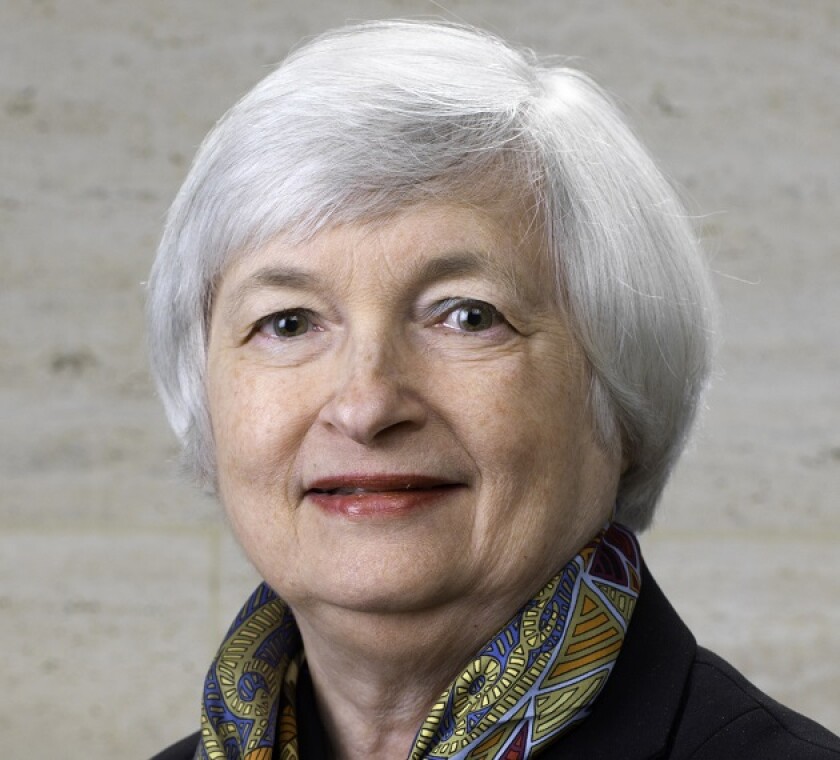Yellen was voted-in unanimously by the US Senate Finance Committee to replace Steven Mnuchin, who suspended OECD-led talks with other countries on the two-pillar digital tax approach in June 2020. Corporate confidence is high on Yellen restarting negotiations after she stressed that efficient taxation of multinational companies was a priority.
“Working in the context of the OECD negotiations on global taxation, we have much greater leverage to keep our American firms competitive if we avoid a race to the bottom in corporate taxation more globally,” said Yellen at the US Senate on January 19, showing her support for pillar two regarding a global minimum tax.
Yellen’s appointment on January 22 also makes a carbon tax more likely to become part of US policy in the near future. The former chair of the Federal Reserve is a long-time advocate of carbon taxes and was a member of the Climate Leadership Council (CLC) for many years.
As the OECD waits for the Biden administration to take shape, the pace of digital tax reform has not slowed down. The public meeting of the OECD/G20 Inclusive Framework on January 27/28 saw finance ministers from Canada, Germany, Italy, Indonesia, Jamaica and the UK stress the need for multilateral digital tax solution, but more work still needs to be done.
Before the event, the OECD's Head of Transfer Pricing Stewart Brant spoke to ITR about his team's work on pillar one in 2021 and a new knowledge-sharing initiative.
Meanwhile, the Inclusive Framework (IF) meeting also involved discussions on the global economic outlook and impact of COVID-19, while senior international experts examined how tax can help deliver on the UN Sustainable Development Goals.
Other discussions were focused on tax morale among businesses and how to strengthen it, the future of international taxation, tax certainty, tax transparency and tax administration 3.0. A further informal day of briefings on the OECD work is being held on January 29.
Although Yellen did not attend the IF meeting, she has been busy in her first week holding conversations with finance ministers in France, Germany, the UK and others to discuss cooperation on fiscal matters. Nevertheless, trade tensions are still expected to continue between the US and other countries, especially as countries like Spain push ahead with digital services tax.
In other news, Nigeria’s inaugural Annual National Tax Dialogue meeting in Abuja, organised by the Federal Inland Revenue Service (FIRS), brought together regional and national government officials and tax experts to discuss taxation in the post-COVID economy.
The event resulted in the federal government being advised to “explore data and intelligence in order to ease tax collection and improve its revenue base”.
In addition, there have been a number of important tax developments:
Japan signed an agreement for the avoidance of double taxation (DTA) with Georgia on January 29, which will replace the 1986 treaty;
Chile and the Netherlands signed a DTA on January 25;
ITR highlighted how the racial justice movement led by the Black Lives Matter campaign has impacted the tax sector;
The repeal of the London inter-bank offered rate (Libor) will have a significant impact on transfer pricing inter-company loans;
The OECD released a report suggesting 15 economies in Africa, Asia and Latin America and the Caribbean could mobilise domestic revenue by making better use of energy taxes and reducing energy subsidies;
The US Tax Court will now accept electronically filed stipulated decisions bearing digital image signatures to accommodate remote operations during the COVID-19 pandemic. The move has been defended by Chief Judge Maurice B Foley this week despite complaints expressed on Twitter about the change;
The World Trade Organisation (WTO) published a report on January 28 on how developing countries can use digital technologies to increase their participation in world trade; and
The European Court of Auditors has said there still insufficient sharing of tax information between EU Member States to ensure fair and effective taxation throughout the single market.
Coming up next week
As we enter February next week, there will be a lot to look forward to, including the release of ITR’s 10th edition of the Global Tax 50.
On February 1, there will be a public consultation meeting to discuss the proposals for the 2020 review of the Action 14 minimum standard at the OECD. Consultation responses on the mutual agreement procedure (MAP) were published on January 14 ahead of the public event, which discussed:
Experiences with, and views on, the status of dispute resolution and suggestions for improvements, including experiences with MAPs in those jurisdictions that obtained a deferral; and
How to strengthen the Action 14 minimum standard and MAP statistics reporting framework.
Mark Martin and Thomas Bettge of KPMG in the US have explored how adopting these proposals could improve dispute resolution in an article published by ITR.
Also on February 1, India’s Finance Minister Nirmala Sitharaman will present her second annual budget. A lot is expected from the finance minister to support businesses in the post-COVID recovery period, as well as a number of changes to improve the country’s indirect tax regime.
ITR will be providing detailed coverage of the budget announcement, including a webinar with Dhruva Advisors and Taxsutra, as well as articles on how companies are adapting their tax plans in response to the budget.
Meanwhile, ITR will also be examining Uber’s suggestion on how in-house tax policies could help companies align with the UN SDGs and improve on their environmental records.











